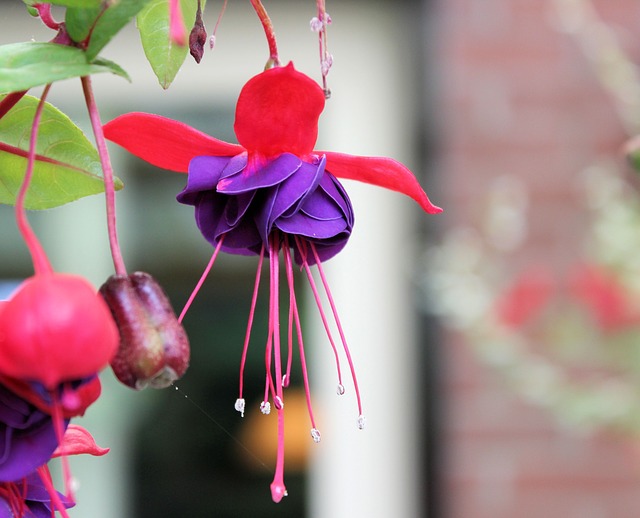
Cascade Minerals’ own Chuck Canham will be giving a special presentation about the benefits of soil remineralization as part of the “Forever Fuchsias” celebration at Lakewold Gardens in Lakewold, Washington during the first weekend of September. (Chuck will speak to visitors at 1:00 PM on Saturday, September 6, 2014; additional event details can be found at Lakewold Gardens.)
Members of the Northwest Fuchsia Society invited Chuck to speak to their group after experiencing first-hand the benefits to fuchsias of soil remineralization. If you’re wondering how to grow and care for these beautiful flowers, but are worried about the “fussy factor,” then read on.
“Fussy” Fuchsias – Fact or Fiction?
Fuchsias can be a bit fussy about moisture and temperature. But with a minimum of care and attention, they are relatively easy to grow in baskets and containers.
When planting, use a high-quality and fast-draining potting soil amended with all-natural rock dust made of volcanic basalt. A product like Cascade Minerals Remineralizing Soil Booster, made of all-natural basalt and approved for organic use, will provide hungry fuchsias with essential minerals and trace elements throughout the summer growing season.
Unless they are the hardy type, most fuchsias are annuals that prefer to be in semi-shady conditions with moderate temperatures (between 55-80°F). Fuchsias need consistent moisture to fully develop their delicate blooms (i.e., they generally do not do very well in hot, dry conditions). In other words, hydrate…but don’t overwater to avoid root rot.
To keep fuchsias blooming all summer, pick off spent blossoms and check plants regularly to make sure insects are not taking over stems and leaves. (Note: the readily available silicon in rock dust helps ensure strong, vigorous stems and healthy plants that are naturally more resistant to pests and disease than plants that have been grown in non-mineralized soil).
As the weather gets cooler, you can bring fuchsias indoors—although, dry air and spider mites often contribute to fuchsia failure. That’s why it’s best to enjoy these beautiful plants in their full outdoor glory during the warm days of summer and early fall.
Hope to see you at the “Forever Fuchsias” celebration on September 6, 2014!
